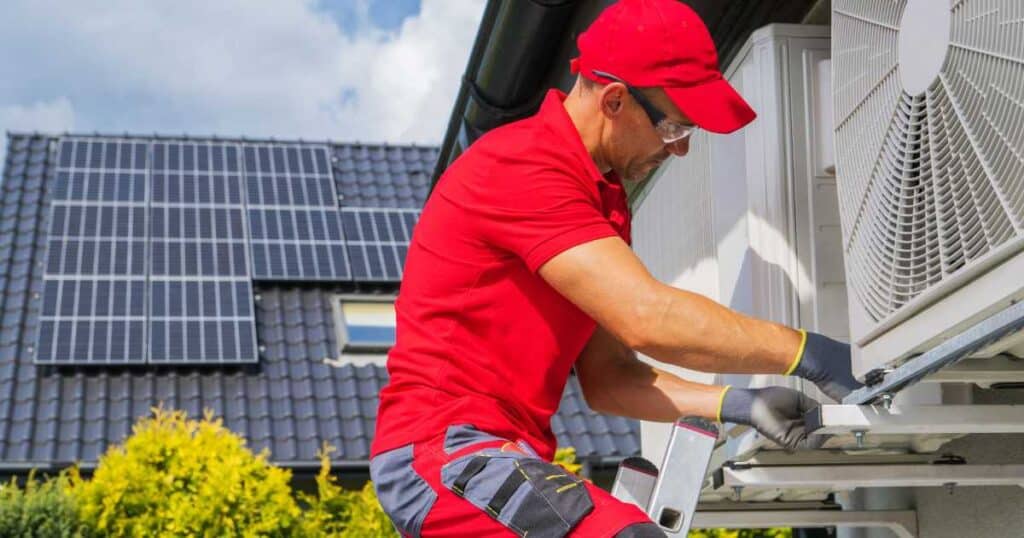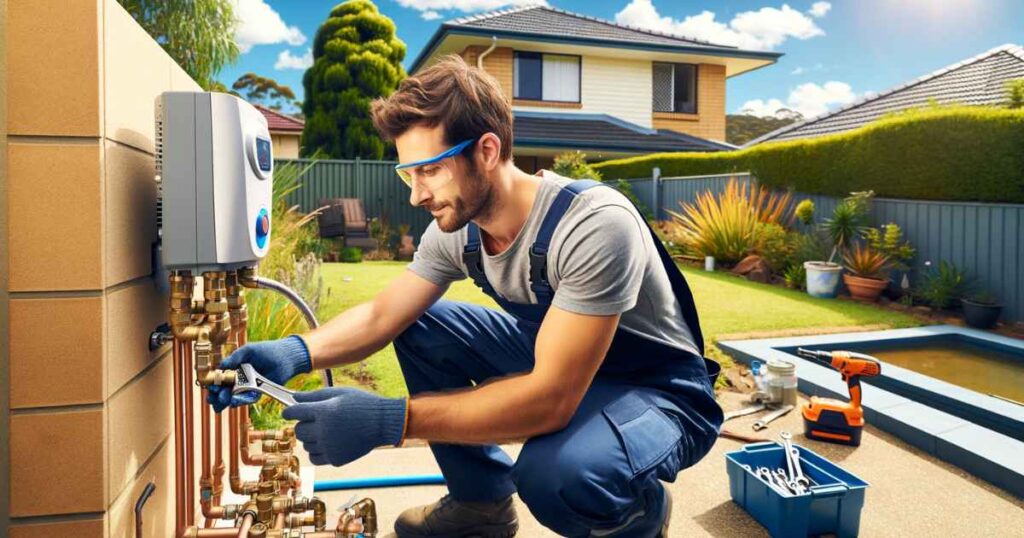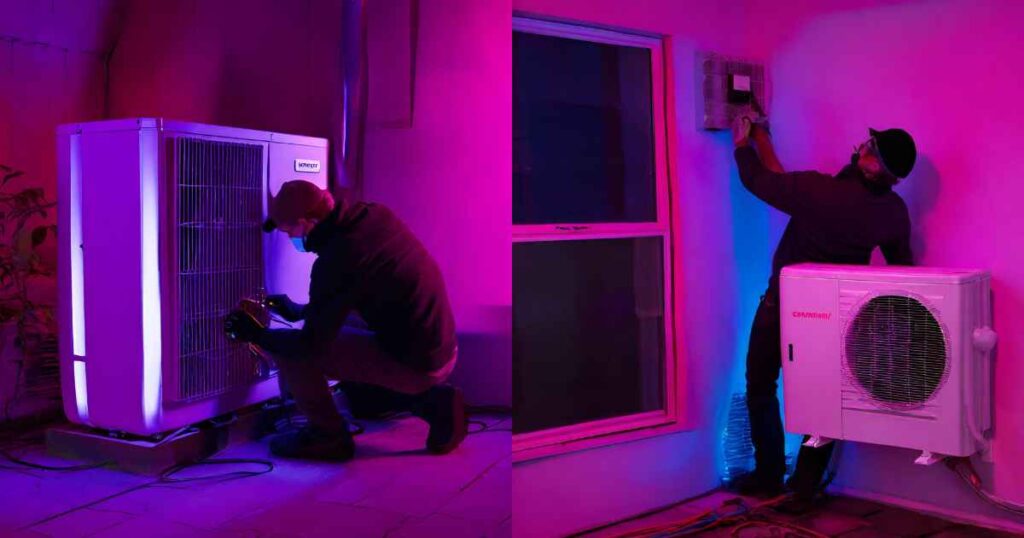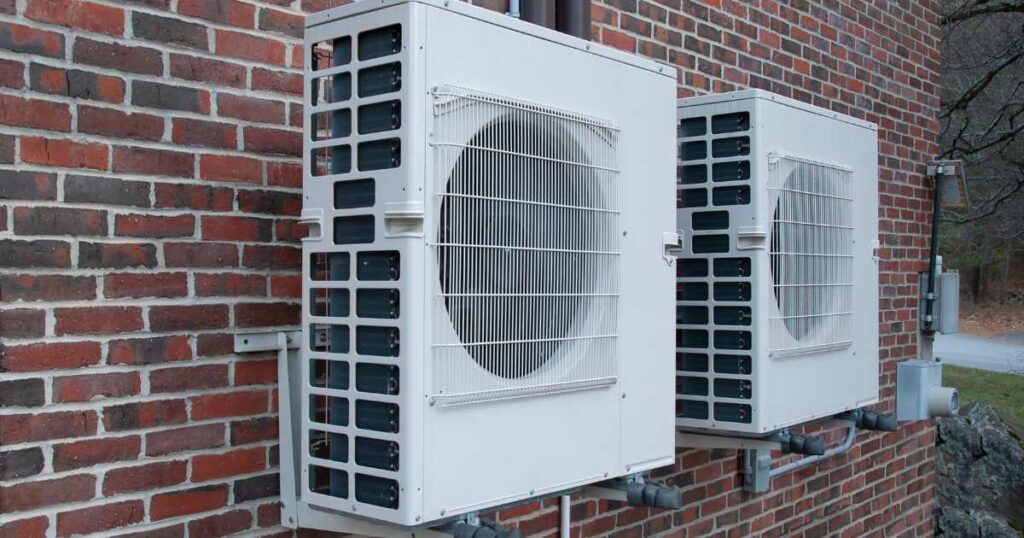Unlocking Savings: How to Get a Free Hot Water Upgrade
Introduction – Free Hot Water Upgrade
In the quest for a more sustainable and cost-efficient home, upgrading your hot water system can be a game-changer. While the prospect of such an upgrade might seem daunting due to perceived high costs, numerous initiatives now make it possible to obtain a hot water upgrade for free or at a significantly reduced cost. This article aims to guide homeowners through the myriad of benefits associated with upgrading their hot water systems, outline the criteria for eligibility for free upgrades, and highlight how such improvements not only bolster home efficiency but also contribute to a greener, more sustainable living environment. Whether you’re looking to reduce your carbon footprint, lower your energy bills, or simply enjoy the comforts of a more efficient home, understanding the ins and outs of a free hot water upgrade is the first step towards a smarter, more sustainable household.
Understanding Hot Water Upgrades
The hot water system in your home is more than just a daily convenience; it’s a crucial component of your household’s functionality and comfort. But what exactly goes into a hot water system, and why is understanding it important, especially when considering an upgrade? This section will delve into the basics of hot water systems, the different types available, and the role they play in your home’s energy consumption.
The Basics of Hot Water Systems
At its core, a hot water system heats water and supplies it throughout your home for various uses like bathing, cooking, and cleaning. It consists of a heating mechanism, which can be powered by electricity, gas, or solar energy, and a system to store or distribute the hot water.
Types of Hot Water Systems
- Storage Systems: These systems heat water and store it in an insulated tank for later use. They can run on electricity, gas, or solar power.
- Continuous Flow Systems: Also known as instant or tankless systems, they heat water as needed, providing a continuous supply without the need for a storage tank.
- Solar Hot Water Systems: These eco-friendly systems use solar panels to capture energy from the sun to heat water, often supplemented by electric or gas heating on cloudy days.
- Heat Pump Systems: These function like a reverse fridge, extracting heat from the air to warm the water.
Energy Consumption and Efficiency
Hot water systems can be one of the largest energy users in your home, accounting for a significant portion of your energy bill. The efficiency of these systems varies greatly depending on the type, age, and model. Older systems are generally less efficient, consuming more energy to provide the same amount of hot water as newer, more efficient models.
The Importance of Understanding Your System
Knowing the type of hot water system you have, its energy efficiency, and its operating cost is crucial when considering an upgrade. An efficient system not only saves money on energy bills but also reduces environmental impact. Additionally, understanding your household’s hot water needs helps in choosing the most suitable system when considering a free upgrade.
By grasping the basics of hot water systems, you’re better equipped to make informed decisions about upgrades, particularly those that come at little to no cost. In the next section, we will explore the myriad benefits of upgrading your hot water system and how it aligns with both your financial and environmental goals.
Benefits of Upgrading Your Hot Water System
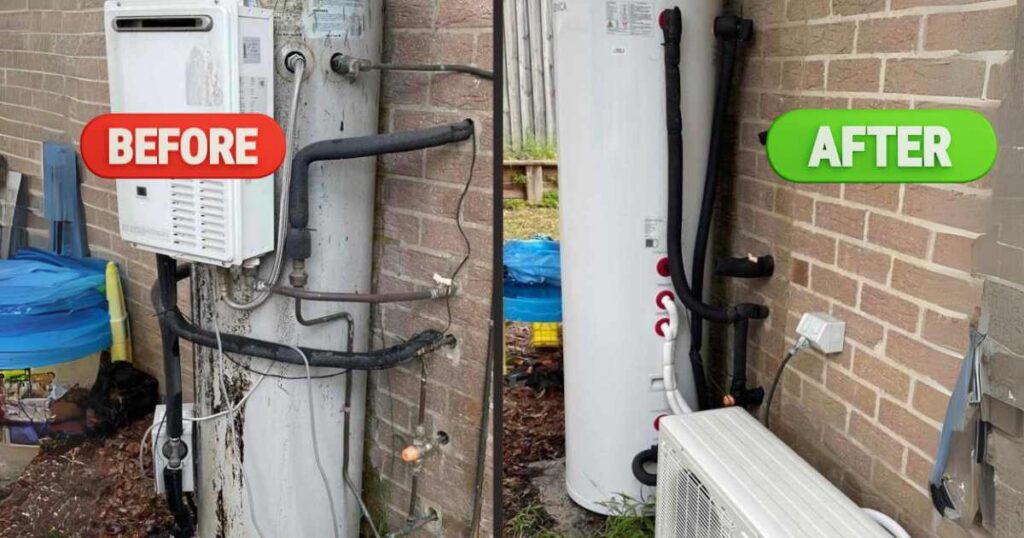
Upgrading your hot water system is not just a home improvement task; it’s an investment in efficiency, sustainability, and financial savings. Modern systems bring a plethora of benefits, making them an attractive option for homeowners. Here’s a look at some of the key advantages:
Enhanced Energy Efficiency
Newer hot water systems are designed with energy efficiency at their core. By using less energy to heat water, they can significantly reduce your home’s overall energy consumption. This not only leads to lower utility bills but also minimizes your environmental footprint.
Cost Savings in the Long Run
While the upfront cost of a new hot water system can be substantial, the long-term savings are often worth the investment. More efficient systems use less energy, which translates into lower energy bills over time. Additionally, newer models often require less maintenance, further reducing your expenses in the long run.
Increased Property Value
Homes with modern, energy-efficient appliances are increasingly sought after in the real estate market. Upgrading to a contemporary hot water system can boost your home’s value, making it a more attractive proposition for potential buyers or renters.
Reduced Carbon Footprint
By consuming less energy, high-efficiency hot water systems contribute to lower carbon emissions. This is particularly relevant in the context of global efforts to combat climate change, making an upgraded system a responsible environmental choice.
Better Performance and Reliability
New hot water systems are not only more efficient but also more reliable. They provide a consistent supply of hot water, ensuring that you’re never caught off guard by a cold shower. Moreover, with advancements in technology, many systems now offer improved features and controls for a better user experience.
Eligibility for Rebates and Incentives
Homeowners looking to upgrade their hot water systems can access substantial rebates, especially when transitioning from an old system to a more energy-efficient one installed by a renewable energy company. Here’s a breakdown of the eligibility criteria and the potential rebate you could receive:
You Have an Old Hot Water System
- Eligibility Factor: The key eligibility criterion for these rebates is owning an older hot water system. Typically, systems that are several years old and less energy-efficient qualify for upgrade incentives.
- Assessment of Current System: Your current system may need to be assessed to confirm its age and inefficiency, establishing your eligibility for the rebate program.
Upgrading Through Renewable Energy Upgrades
- Installation by a Renewable Energy Company: To qualify for the rebate, the installation must be carried out by ‘Renewable Energy Upgrades’, a certified renewable energy company.
- Focus on Renewable Energy: The upgrade must involve the installation of a hot water system that uses renewable energy, such as solar thermal systems, to be eligible for the maximum rebate.
- Location: Currently, Businesses and Households from Victoria and NSW are eligible for this Upgrade.
Rebates of Up to $3,500
- Rebate Amount: By meeting these criteria, you could be eligible for a rebate of up to $3,500, significantly reducing the financial burden of the system upgrade.
- Rebate Conditions: The exact amount of the rebate and specific conditions can vary depending on local policies, the type of system installed, and the terms set by the renewable energy company.
Steps to Avail of the Rebate
- Check Your Eligibility: Ensure your old system and the planned upgrade meet the criteria.
- Choose the Right Company: Opt for an installation by ‘Renewable Energy Upgrades’ to ensure compliance with the rebate requirements.
- Maintain Documentation: Keep all relevant documentation, such as the old system’s details and proof of the new system’s installation and its specifications.
Peace of Mind
Finally, upgrading your hot water system can offer peace of mind. With a new, efficient system, you can rest easy knowing that your home is equipped with a reliable, cost-effective, and environmentally friendly solution for hot water.
Choosing the Right System for Your Needs
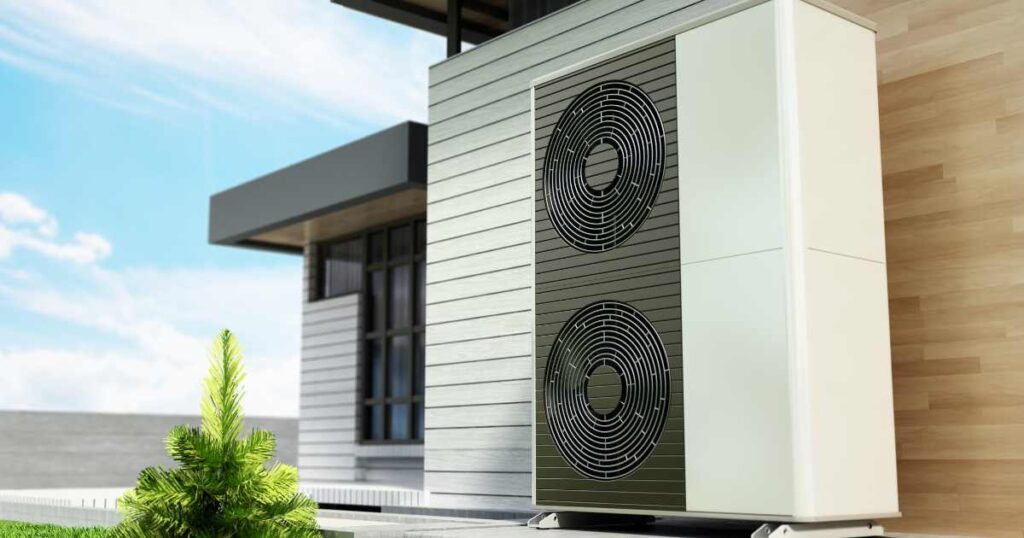
When upgrading your hot water system, especially with the availability of rebates and incentives, selecting the right system that aligns with your household’s needs is crucial. This choice not only impacts your immediate comfort but also affects long-term energy savings and environmental impact. Here’s how you can make an informed decision:
Assess Your Household’s Hot Water Demand
- Usage Patterns: Consider the size of your household and your daily hot water usage. Larger families or homes with high water usage might benefit from a system with a larger capacity.
- Peak Usage Times: Identify times when hot water demand is at its highest. This will help determine the efficiency and capacity needed in your new system.
Understanding Different Types of Hot Water Systems
When it comes to selecting a hot water system for your home, it’s important to understand the various types available. Each system has its unique features, benefits, and considerations. Here’s a closer look at some of the most common types of hot water systems:
1. Solar Hot Water Systems
- How They Work: These systems use solar panels to capture energy from the sun to heat water.
- Benefits: Solar systems are environmentally friendly and can significantly reduce electricity bills. They are especially effective in areas with abundant sunlight.
- Considerations: The initial installation cost can be higher, and efficiency may decrease on cloudy days. However, some systems come with electric or gas boosters to ensure a steady hot water supply.
2. Heat Pump Systems
- How They Work: Heat pump systems extract heat from the surrounding air to heat water, working similarly to a refrigerator but in reverse.
- Benefits: These are highly efficient and can be used in a variety of climates. They use less electricity compared to traditional electric water heaters.
- Considerations: Heat pumps have higher upfront costs but offer long-term savings. They work best in moderate to warm climates.
3. Gas Hot Water Systems
- How They Work: Gas systems use natural gas to heat water, either storing it in a tank or heating it on demand.
- Benefits: They are typically more cost-effective than electric systems and can provide hot water quickly.
- Considerations: Gas systems require a connection to natural gas lines. While they are generally efficient, their environmental friendliness depends on the source of the gas.
4. Electric Hot Water Systems
- How They Work: These systems use electricity to heat water, which is then stored in a tank.
- Benefits: Electric systems are generally cheaper and easier to install. They are suitable for smaller households and areas without gas availability.
- Considerations: The operational costs can be higher due to electricity prices. They are less environmentally friendly compared to solar or heat pump systems.
5. Tankless or Continuous Flow Systems
- How They Work: These systems heat water as it passes through the unit, providing hot water on demand without the need for a storage tank.
- Benefits: Tankless systems are compact and can provide an unlimited supply of hot water. They are typically more energy-efficient than storage systems.
- Considerations: The initial cost can be high, and the output needs to be matched with your home’s demand to ensure efficient operation.
Installation Process for Hot Water Systems
The installation of a hot water system is a critical process that affects the efficiency, safety, and longevity of the unit. Whether you’re installing a new system or upgrading an existing one, understanding the steps involved can help ensure a smooth and successful installation. Here’s a general overview of the process:
1. Choosing a Professional Installer
- Certified Professionals: It’s essential to hire a certified and experienced professional like Renewable Energy Upgrades for the installation. This ensures that the system is installed correctly and complies with all safety standards and building codes.
- Research and Reviews: Look for reputable installers with positive customer reviews and experience in installing the type of system you’ve chosen.
2. Pre-Installation Assessment
- Site Inspection: The installer will conduct a site inspection to assess the location, determine the best placement for the system, and identify any potential challenges.
- System Compatibility: The installer will ensure the chosen system is compatible with your home’s existing plumbing and electrical setup.
3. Removal of the Old System (if applicable)
- Safe Disposal: If you are replacing an old system, the installer will safely remove and dispose of it according to local regulations.
4. Installation of the New System
- Setup: The installer will set up the new system, which involves connecting it to the existing plumbing and electrical systems. For solar systems, this includes installing solar panels.
- Testing: After installation, the system is thoroughly tested to ensure it operates correctly and efficiently.
5. Final Inspection and Commissioning
- Inspection: A final inspection is conducted to check for leaks, proper installation, and compliance with all safety norms.
- Commissioning: The system is then commissioned, which may include adjusting settings to optimize performance and efficiency.
6. Customer Briefing
- Operation Guidance: The installer will guide you through the operation of the new system, including any maintenance requirements and troubleshooting tips.
- Warranty and Documentation: Ensure you receive all necessary documentation, including warranty information and maintenance guidelines.
7. Post-Installation Support
- Follow-up Services: Some installers offer follow-up services to check on the system’s performance and address any issues that may arise.
Considerations for DIY Installation
- While DIY installation may seem like a cost-saving option, it’s generally not recommended due to the complexities and potential risks involved. Professional installation ensures that the system is safe, efficient, and compliant with all regulations.
Conclusion: Embracing the Future with an Upgraded Hot Water System
Upgrading your hot water system is more than a mere home improvement; it’s a step towards embracing a more efficient, sustainable, and cost-effective future. As we have explored, the benefits of upgrading to a modern system are manifold – from significant energy savings and reduced carbon footprint to increased property value and eligibility for enticing rebates and incentives.
Remember, the installation process of these systems is as crucial as the system itself. Relying on certified professionals not only ensures optimal functionality but also guarantees safety and adherence to regulations. Moreover, with potential rebates of up to $3,500, the financial burden of this upgrade can be significantly alleviated.


